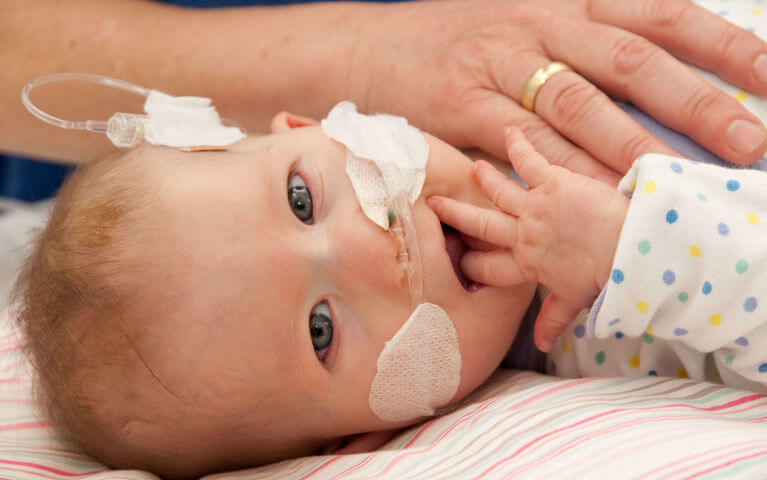Department of Pediatric Cardiology & Congenital Heart Diseases
Center for Child & Adolescent Medicine
Heart defects of all kinds in childhood and adolescence are the clinical and scientific focus of the University of Heidelberg Department of Pediatric Cardiology/Congenital Heart Diseases at the Center for Child and Adolescent Medicine.
Intensive cooperation on the part of our experienced pediatric cardiologists with the cardiac surgeons at the Department of Surgery and the cardiologists at the Department of Internal Medicine at Heidelberg University Hospital within an interdisciplinary heart center guarantees the competent, comprehensive care of patients of all ages with acquired and congenital heart defects. From individualized medication therapy to the use of pacemakers to heart transplants, we develop a customized treatment plan for every patient.
Intensive cooperation
- Specially trained and certified pediatric cardiac surgeons at the Department of Surgery provide surgical treatment for our patients of all ages.
- Our pediatric cardiologists and the cardiologists at the Department of Internal Medicine jointly treat adult patients with congenital heart defects.
- In collaboration with the gynecologists at the Department of Obstetrics/Gynecology, we can diagnose congenital heart defects even before birth, advise the parents, and plan the necessary treatment.
- Every year, our experienced team of specially trained and certified pediatric cardiologists (7) and intensive care physicians treats some 6,000 patients with acquired or congenital heart defects of all ages on an inpatient and outpatient basis including surgery if required and post-operative care.
- Working jointly with the neonatologists at the University Hospital, we treat premature and full-term infants with congenital heart defects at the premature intensive care unit at the Department of Obstetrics and Gynecology.
Heart Catheterization Lab
At a specially equipped heart catheterization lab, we can examine patients ranging from premature infants to adults. Here, we are able to conduct a full range of invasive diagnostic procedures as well as interventional valve and vascular dilatation, correction of heart defects, ductus arteriosus closure, and vascular embolization and stent implantation.
Imaging congenital heart defects
In our department, we have all of the modern methods available for imaging congenital heart defects: magnetic resonance imaging and computer tomography are non-invasive methods for making a reliable, accurate diagnosis of heart defects in children. Working with the pediatric radiologists at the Department of Radiology, we increasingly use these procedures as an alternative to or in combination with heart catheterization to reduce exposure to radiation to a minimum. The high spatial and temporal resolution and the three-dimensional processing of the digital imaging data in both procedures improve and simplify the planning of surgery or other procedures.
Parents can stay right on the ward in the patient’s room or in a specially furnished parents’ room. There are also apartments for parents in the immediate vicinity of the hospital.
Overview: All Clinical Departments at Heidelberg University Hospital
Overview of Departments: Childhood Diseases:



![[Translate to English:] Portrait von Prof. Dr. med. Matthias Gorenflo](/fileadmin/_processed_/6/8/csm_Gorenflo_0bed2dbfcc.jpg)